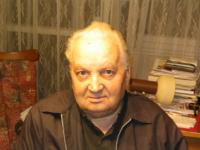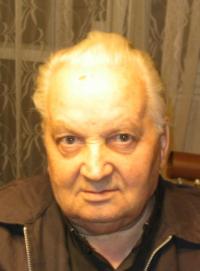There is so much evil, but some good people are found even there

Download image
Ivan Ljavinec was born April 18, 1923 in Volovec in the then Carpathian Ruthenia which belonged to the Czechoslovak Republic. He comes from a teacher’s family of Greek-Catholic faith who registered themselves as Rusyn nationals. After graduation at grammar school he studied theology in Uzhhorod and he asked the bishop for an opportunity to study at a seminary abroad. In 1941 he went together with his friend to Pazmaneum in Vienna, which was the central foreign seminary of the Hungarian diocese. Universities were then closed down and they both found refuge in a Cistercian monastery Heiligenkreuz. This place became part of the Soviet occupation sector at the end of the war and Ivan’s superior thanked God’s Providence that he had accepted both friends. They could speak Russian and they managed to negotiate with the soldiers and the monastery Heiligenkreuz was thus saved from looting and it survived the arrival of the Red Army only with minor damages. Ivan felt great regret for the surrender of Carpathian Ruthenia to the Soviet Union. He went to Prague, where he opted for the Czechoslovak citizenship. In 1946 he completed his studies and at the same year he was ordained a priest in Prešov. He began working as a secretary of bishop Pavel Gojdič and he was involved in many other activities of the Greek Catholic Church. This church suffered persecution alongside the Roman Catholic Church. By coincidence he evaded the nationwide arrests of members of Catholic orders in 1950. The so-called Prešov sobor (assembly - transl.’s note) was fully controlled by the Communist Party, and it declared a unification of the Greek Catholic Church with the Orthodox Church, which was subject to the Moscow Patriarchate. Parsonages and churches were transferred under the administration of Orthodox priests and the Greek Catholic faith became outlawed. Interned bishop Vasil Hopko appointed Ivan Ljavinec a general vicar and a representative of interned bishops with an extraordinary procuration and tasked him with maintaining contact among the priests and officially pardoning those priests who had signed the agreement of unification with the Orthodox Church under pressure. Ivan Ljavinec was arrested and sentenced in the trial Ljavinec and Co. in 1956 for subversion of the people’s democratic state system. He served his sentence in the prison in Prague-Ruzyně, in Valdice and as a prisoner he also mined in the coal mines in Rtyně v Podkrkonoší. He was released in 1959. In a hopeless situation without home and employment and suffering from a lung disease he received help from friends and acquaintances. Ivan Ljavinec organized a successful petition for restoration of the Greek Catholic Church. In 1969 he was granted the state permission for ministry as a priest. He administered the Greek Catholic parish in Prague. In 1989 he became the bishopric vicar of the Greek Catholic Church in the Czech Republic. After the establishment of the Apostolic Exarchate by Pope John Paul II for Catholics of the Byzantine-Slavic rite he was ordained the first apostolic exarch. He received the bishopric ordination on March 30, 1996 in Rome. Ivan Ljavinec died on December 9, 2012.

